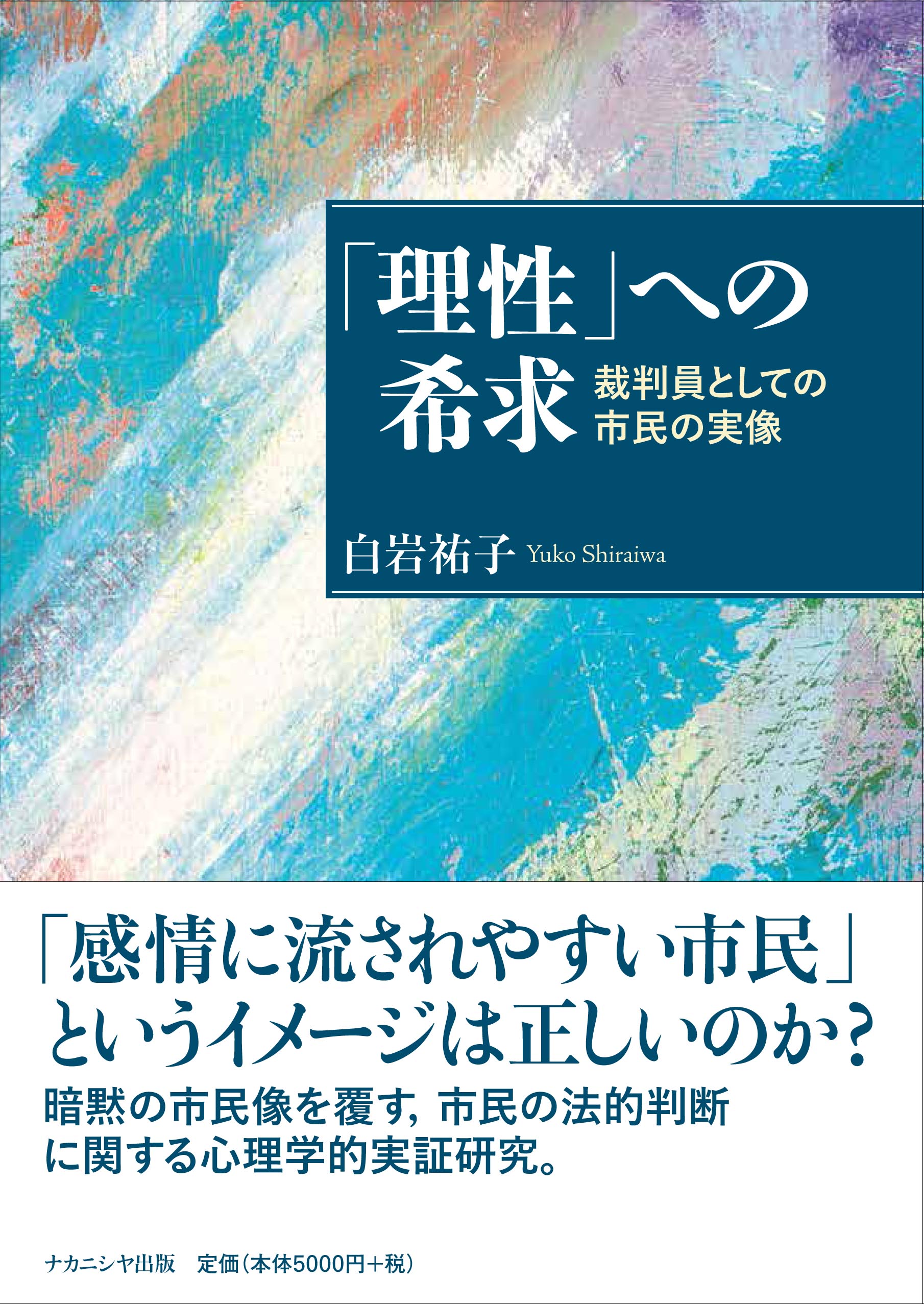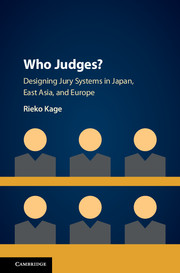
Title
Risei eno kikyu (Desire for Reason – real picture of citizen judges)
Size
160 pages, A5 format
Language
Japanese
Released
February 28, 2019
ISBN
9784779513534
Published by
Nakanishiya Shuppan
Book Info
See Book Availability at Library
Japanese Page
“At a criminal trial (citizen judge system) for a murder, the victim’s bereaved family is allowed to participate, ask the defendant questions, and express opinions about the punishment. What do you think of this?”
When I ask this question in class, many students respond that they are against allowing such participation. Their reasons can be broadly divided into the following three types of convictions.
(1) A trial should be impartial.
(2) A trial should not get emotional.
(3) The citizen judges will feel sympathetic to the bereaved family and will impose a severe punishment on the defendant.
The same reasons are repeated nearly verbatim in just about every class at every university, but these assumptions are not limited to students. The victim participation system, which allows the victims of major crimes or their families to question the defendant or express their opinions during a trial, is part of a new law passed by the Diet in 2007. At that time, it was widely criticized by the major newspapers, those in the legal professions (especially lawyers), and criminal law scholars, a majority of who cited the same reasons given above for their objections.
But let us stop here and reflect for a moment. The fact that so many people object to the victim participation system means that a majority of people believe trials should be impartial, that they should not get emotional, or that to be swayed by sympathy for the victim’s bereaved family to impose a strict punishment is absolutely out of the question. If that is the case, does it not suggest that when any of these people serve in a trial as a citizen judge, they will make every effort not be swayed by the words or actions of the victims or their families? And does it not imply that three reasons given above is a matter of needless worry?
I wondered about this and decided to carry out an experiment. I had my university students read the scenario for a fictitious trial and then asked them about their reactions to the words and behavior of the victim’s bereaved family members: “How were you affected by the bereaved family?” and “How do you think the other citizen judges were affected?” As I expected, roughly 80% said that while they would not be affected, they thought the other citizen judges would be. This kind of asymmetric cognition is known in the field of media psychology as the “third-person effect,” a type of cognitive bias that has been confirmed to occur in response to information that is considered undesirable by common social norms. (For example, the “third-person effect” was clearly evident among a majority of students who were asked to read a newspaper article claiming the history of the Holocaust is a total fabrication.)
It became clear from this experiment that first, allowing a victim’s bereaved family to directly question the defendant in court was undesirable to the same degree (!) that historical revisionism denying that the Holocaust even occurred was unthinkable; and second, the objections to the victim participation system originated in a cognitive bias that assumes citizen judges (with the exception of oneself) will be influenced by the words and behavior of the victim or the victim’s family.
The latter half of this book is devoted to verifying—through multiple scenarios and video experiments—two hypotheses derived from the above findings. The two hypotheses are,
1. Those whose convictions (1) and (2) are weak will impose a severe punishment on the accused if the victim’s bereaved family participates in the trial.
2. Those whose convictions (1) and (2) are strong will impose the same degree of punishment on the accused regardless of the participation in the trial by the victim’s bereaved family.
Systems much like Japan’s victim participation system exist in the UK, the US, Australia, and a number of other countries, and, against the backdrop of similar awareness of the issues, empirical studies have already been made on the impact of victim participation in criminal trials and how it may affect decisions on punishment. The results, however, were not consistent. Experiments that did not support the predicted outcome were considered failures, and their robustness and mechanisms were not examined in detail. In this book I demonstrate that there can be two patterns to sentencing in a trial, depending on the strength or weakness of convictions (1) and (2), and attempt in our conclusion to explain why past research was unable to achieve consistent outcomes.
(Written by SHIRAIWA Yuko, Lecturer, Graduate School of Humanities and Sociology / 2019)
Related Info
The Japanese Society of Social Psychology (2019)
http://www.socialpsychology.jp/award/award.html



 Find a book
Find a book


